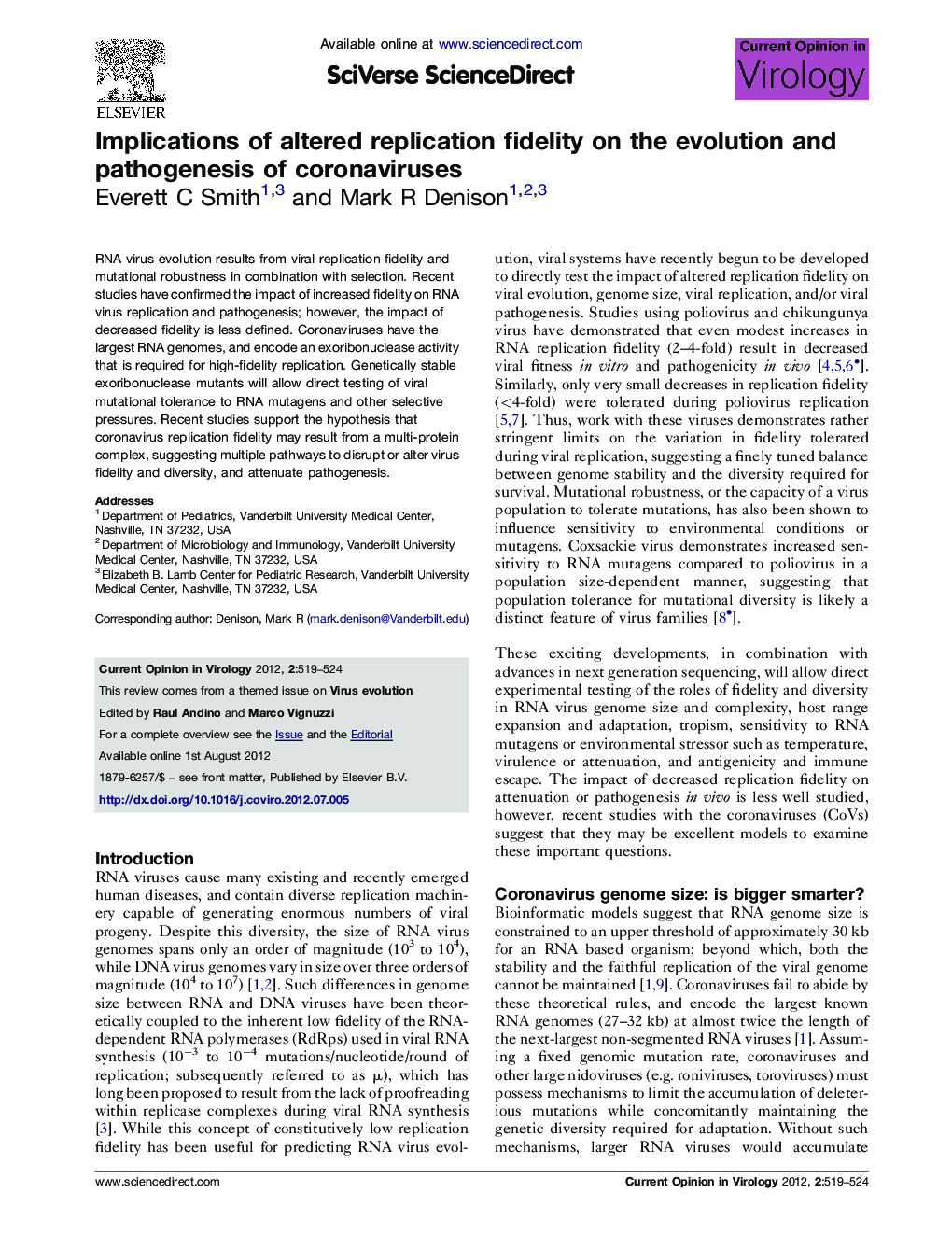| Article ID | Journal | Published Year | Pages | File Type |
|---|---|---|---|---|
| 5806910 | Current Opinion in Virology | 2012 | 6 Pages |
RNA virus evolution results from viral replication fidelity and mutational robustness in combination with selection. Recent studies have confirmed the impact of increased fidelity on RNA virus replication and pathogenesis; however, the impact of decreased fidelity is less defined. Coronaviruses have the largest RNA genomes, and encode an exoribonuclease activity that is required for high-fidelity replication. Genetically stable exoribonuclease mutants will allow direct testing of viral mutational tolerance to RNA mutagens and other selective pressures. Recent studies support the hypothesis that coronavirus replication fidelity may result from a multi-protein complex, suggesting multiple pathways to disrupt or alter virus fidelity and diversity, and attenuate pathogenesis.
⺠The range and optimized replication fidelity may differ between RNA viruses. ⺠Increasing or decreasing fidelity impacts viral replication and pathogenesis. ⺠An encoded exoribonuclease (ExoN) allowed expansion of the coronavirus RNA genome. ⺠ExoN enhances fidelity by 20-fold and is likely part of an RNA proofreading complex. ⺠Altered fidelity could be a universal attenuation strategy for live-virus vaccines.
